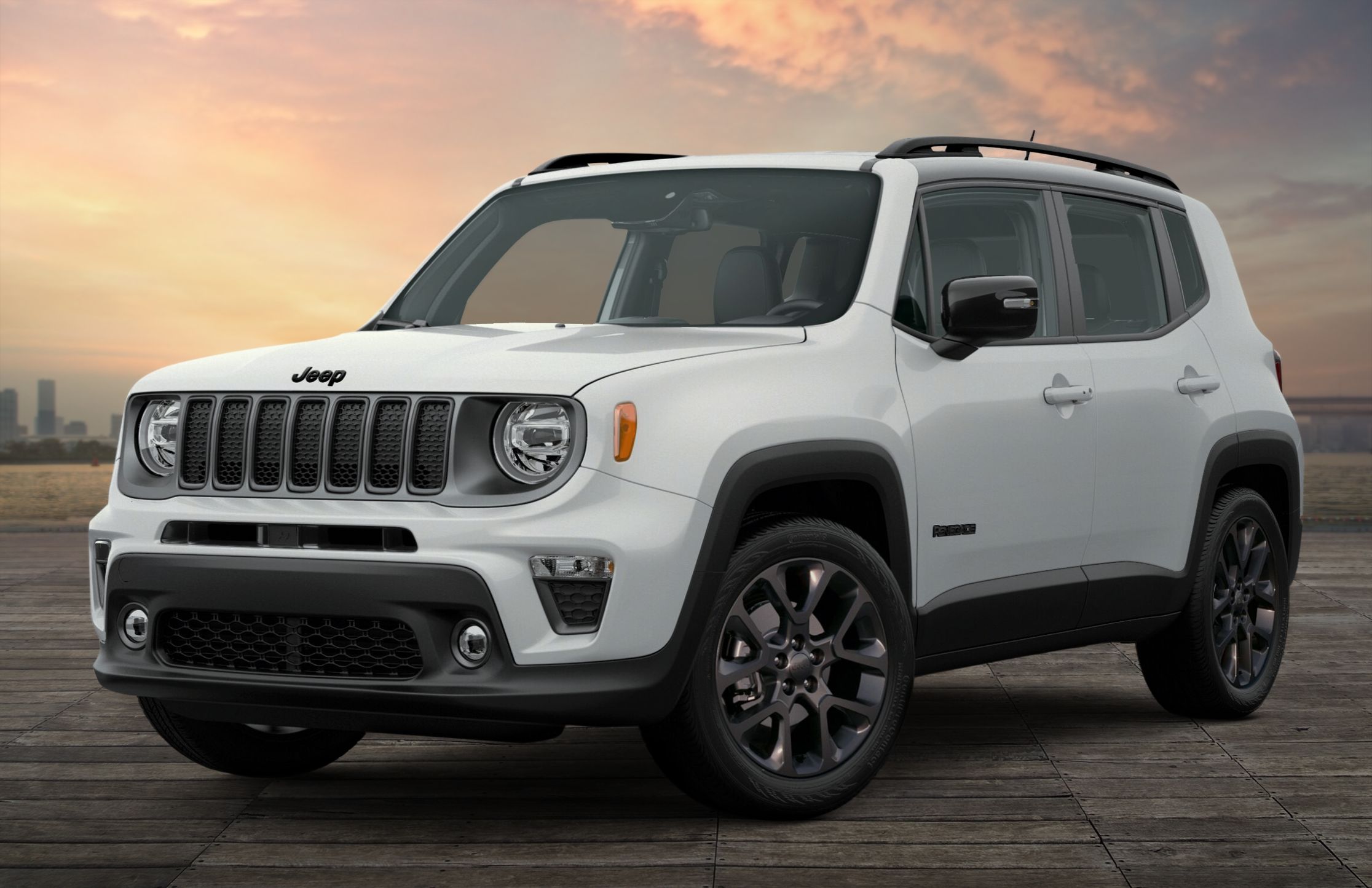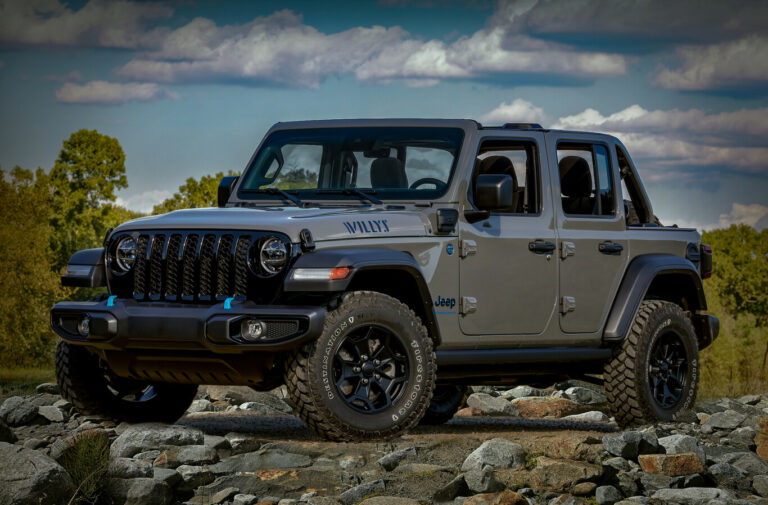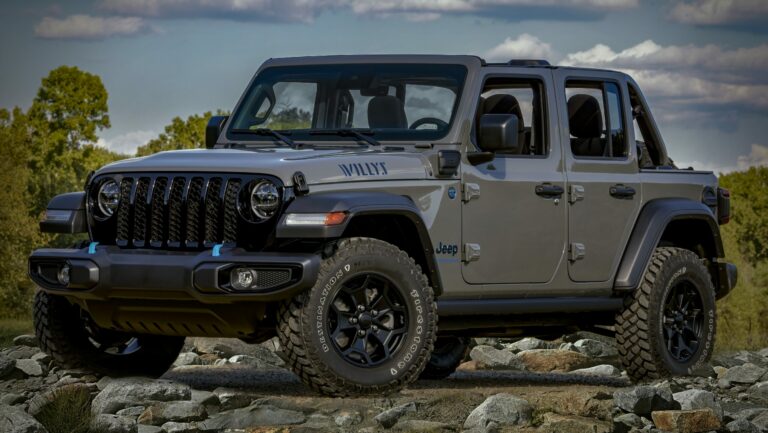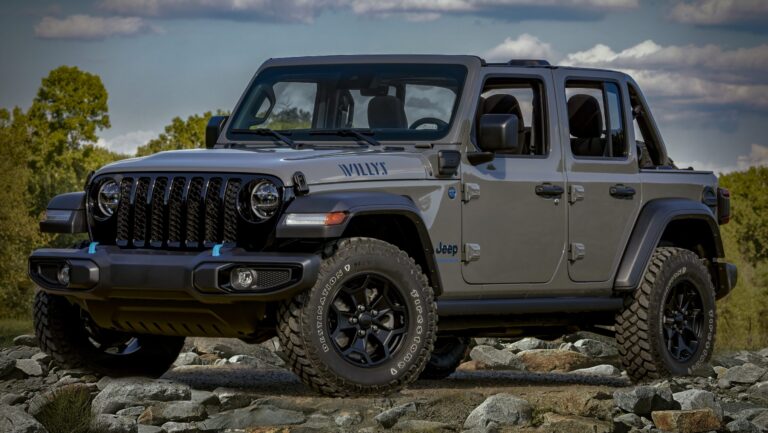Jeep Liberty Diesel Engine For Sale: A Comprehensive Guide
Jeep Liberty Diesel Engine For Sale: A Comprehensive Guide /jeeps.truckstrend.com
The automotive landscape is vast and varied, but every so often, a vehicle emerges that carves out its own unique niche. For many enthusiasts and practical drivers alike, the Jeep Liberty Diesel, specifically the KJ generation (2005-2006 in North America) equipped with the 2.8-liter VM Motori Common Rail Diesel (CRD) engine, is one such anomaly. Blending the iconic utility and off-road prowess of a Jeep with the robust torque and superior fuel efficiency of a diesel powerplant, the Liberty CRD offers a compelling package that remains highly sought after, even years after its limited production run.
Whether you’re an existing Liberty owner looking to revive a tired gasoline engine with a diesel swap, or an aspiring CRD owner seeking a replacement engine for a project, the quest for a "Jeep Liberty Diesel Engine For Sale" is a journey that requires knowledge, patience, and a keen eye. This comprehensive guide aims to illuminate the path, providing essential insights into the appeal, considerations, acquisition, and maintenance of this remarkable diesel heart.
Jeep Liberty Diesel Engine For Sale: A Comprehensive Guide
Why the Jeep Liberty Diesel Engine? Understanding Its Enduring Appeal
The allure of the Jeep Liberty CRD stems from several key advantages that set it apart from its gasoline-powered siblings and many other SUVs of its era:
- Exceptional Torque and Towing: The 2.8L VM Motori turbodiesel engine delivers a formidable 295 lb-ft of torque at a low 1,800 RPM (160 hp at 3,800 RPM). This low-end grunt is perfect for off-roading, crawling over obstacles, and provides a significant boost in towing capacity, allowing the Liberty CRD to comfortably pull up to 5,000 pounds.
- Superior Fuel Economy: Compared to the thirsty 3.7L V6 gasoline engine, the diesel variant offers significantly better fuel economy. Owners commonly report averages in the low to mid-20s MPG, with some achieving even higher figures on highway cruises, a remarkable feat for a capable 4×4 SUV.
- Durability and Longevity: Diesel engines are renowned for their robust construction and long service life when properly maintained. The VM Motori A428 DOHC engine, a four-cylinder, 16-valve unit, is designed for heavy-duty applications, promising many miles of reliable operation.
- Uniqueness and Scarcity: With only two model years of availability in North America, the Liberty CRD is a relatively rare find. This exclusivity adds to its appeal, making it a distinctive choice for those who appreciate something beyond the mainstream.
- Enhanced Off-Road Capability: The diesel’s strong low-end torque translates directly into improved off-road performance. It allows for precise throttle control at low speeds, making technical trails and steep ascents much easier to navigate without excessive throttle input or gear hunting.

These attributes combine to create a vehicle that is not only practical for daily driving but also highly capable for adventures, distinguishing it from typical compact SUVs.
Key Considerations Before Buying a Jeep Liberty Diesel Engine
Acquiring a Jeep Liberty diesel engine, whether as a standalone unit or within a complete vehicle, requires a thorough understanding of its specifics and potential pitfalls.
Engine Specifics: The VM Motori 2.8L CRD

The engine in question is the VM Motori A428 DOHC, a 2.8-liter (2776cc) inline-four cylinder, 16-valve, common rail direct injection turbodiesel. It utilizes a variable geometry turbocharger (VGT) and an intercooler. For the North American market, it was paired exclusively with a 545RFE five-speed automatic transmission.
Model Years and Availability
The Liberty CRD was sold in the US and Canada for the 2005 and 2006 model years. This limited production run means that finding an engine can be challenging, and prices may vary widely based on condition and availability.
Maintenance History: Paramount for Diesels
For any diesel engine, a comprehensive maintenance history is non-negotiable. Diesels are sensitive to proper oil changes, fuel filter replacements, and cooling system maintenance. A neglected diesel can quickly become an expensive headache. Look for records of:
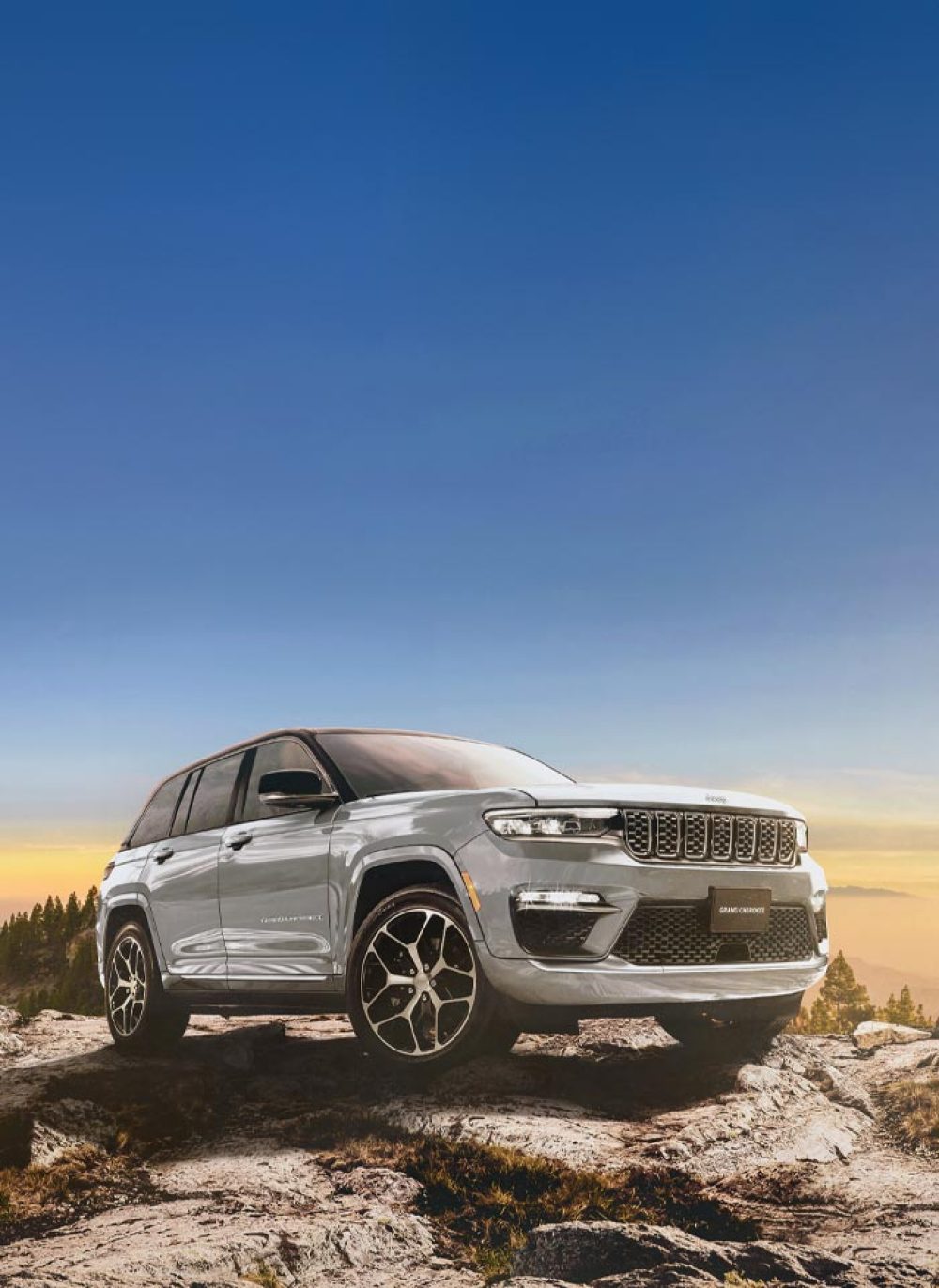
- Oil and Filter Changes: Using the correct low-ash (C3-rated) engine oil is crucial for the diesel particulate filter (if equipped, though early CRDs in North America generally had simpler emissions systems) and engine longevity.
- Fuel Filter Replacements: Essential for protecting the sensitive common rail injection system from contaminants.
- Timing Belt Service: This is a critical maintenance item. The 2.8L CRD is an interference engine, meaning a broken timing belt will cause catastrophic engine damage. The recommended interval is typically around 100,000 miles or 5 years, whichever comes first.
Known Issues and Weak Points
While generally robust, the Liberty CRD engine does have a few common issues to be aware of:
- Timing Belt: As mentioned, diligent replacement is vital.
- EGR Valve Issues: Exhaust Gas Recirculation (EGR) valves can clog with soot, leading to performance issues and fault codes. Cleaning or replacement is often necessary.
- Turbocharger Health: Listen for excessive whining or whistling. Check for oil leaks around the turbo seals.
- Injector Issues: Faulty fuel injectors can cause rough idling, misfires, smoke, and poor fuel economy. A "balance rate" test can help diagnose this.
- Hoses and Seals: Age can cause vacuum lines, coolant hoses, and various seals to degrade, leading to leaks or performance issues.
- Cylinder Head Cracks: Less common but a serious issue, often due to overheating or excessive stress. A thorough inspection is crucial.
- Oil Cooler Leaks: The oil cooler assembly can develop leaks over time.
Parts Availability
While not as common as parts for a gasoline Liberty, many critical engine components are available through Mopar (Jeep’s parts division), aftermarket suppliers, and specialized diesel parts distributors. Online forums and communities are excellent resources for finding specific parts and advice.
Where to Find a Jeep Liberty Diesel Engine For Sale
The search for a Liberty CRD engine can take several paths, depending on whether you need a complete vehicle or just the engine itself.
1. Complete Vehicles (for engine donor or full ownership)
- Used Car Dealerships: Less common, but some independent dealers might specialize in unique vehicles.
- Private Sellers: Often found on online marketplaces like Craigslist, Facebook Marketplace, or dedicated automotive classified sites (AutoTrader, Cars.com). This is often where the best deals (and potential risks) lie.
- Online Auction Sites: eBay Motors can occasionally list complete vehicles or parts.
- Specialized Forums/Groups: Dedicated Jeep Liberty CRD owner forums (e.g., LostJeeps.com) or Facebook groups are excellent places to find well-maintained examples from enthusiasts.
2. Standalone Engines
- Salvage Yards/Auto Recyclers: This is a common source for used engines. Be wary of engines with unknown histories. Look for yards that specialize in imports or diesels.
- Specialized Diesel Engine Suppliers: Some companies focus solely on selling used or rebuilt diesel engines. They may offer warranties, adding a layer of security.
- Online Parts Retailers: eBay, RockAuto, and other online stores might list used or remanufactured engines from various sources.
- Engine Rebuilders: Reputable shops can rebuild your existing engine or sell you a remanufactured unit. This is often the most expensive but also the most reliable option.
What to Look For When Inspecting a Jeep Liberty Diesel Engine
A thorough inspection is paramount, whether you’re buying a complete vehicle or just the engine block.
- Visual Inspection:
- Leaks: Check for oil, coolant, or fuel leaks around the engine block, oil pan, valve cover, and turbocharger.
- Cracks/Damage: Look for cracks in the block or cylinder head, especially around mounting points or exhaust manifolds.
- Corrosion: Excessive rust can indicate neglect or exposure to harsh conditions.
- Belts and Hoses: Check their condition. Cracking or fraying indicates a need for replacement.
- Fluid Levels and Condition: Check the engine oil (should not be milky or excessively dark/gritty), coolant (should be clean, not sludgy), and transmission fluid (if applicable).
- Listen to the Engine (if possible):
- Cold Start: Listen for excessive cranking, rough idle, or unusual noises. Diesels are louder than gas engines, but listen for knocking, ticking, or excessive rattling.
- Idle: Should be relatively smooth and consistent.
- Acceleration: Listen for turbo whine (normal, but excessive whine can indicate issues), unusual knocking, or power loss.
- Exhaust Smoke: A little white smoke on cold start is normal. Excessive black smoke (unburnt fuel), blue smoke (burning oil), or persistent white smoke (coolant) indicates problems.
- Scan for Codes: An OBD-II scanner is essential. Check for any stored or pending trouble codes, even if the check engine light isn’t on.
- Test Drive (if a complete vehicle): Assess acceleration, transmission shifts, brake performance, steering, and any unusual noises or vibrations under load.
- Compression Test: If buying a standalone engine, a compression test can reveal the health of the cylinders, though this often requires specialized equipment.
- Ask for Records: Always request maintenance and repair records. A seller who can provide them indicates a more responsible owner.
The Cost of a Jeep Liberty Diesel Engine (and Associated Expenses)
The price of a Jeep Liberty diesel engine can vary significantly based on its condition, source, and what’s included. Beyond the engine itself, budget for additional costs.
Estimated Price Table for Jeep Liberty Diesel Engine For Sale
| Engine Type/Condition | Estimated Price Range (USD) | Notes/Inclusions |
|---|---|---|
| Used Engine | $1,500 – $4,000 | Varies widely by mileage, condition, and seller. Often sold as long blocks (without accessories). Limited or no warranty. |
| Remanufactured Engine | $4,000 – $7,000+ | Fully rebuilt to OEM specifications. Includes new wear parts (pistons, bearings, seals). Often comes with a warranty (e.g., 1-3 years). |
| Complete Used Vehicle | $4,000 – $12,000+ | Price depends heavily on overall vehicle condition, mileage, and maintenance history. Best way to get a "turn-key" CRD. |
| Engine Core Charge | $500 – $1,500 | Often required for remanufactured engines; refunded upon return of your old, rebuildable engine core. |
Associated Expenses: Don’t Forget to Budget For
- Installation Costs: If you’re not doing the swap yourself, professional labor can range from $1,000 to $3,000 or more, depending on the complexity and shop rates.
- Ancillary Parts:
- Gaskets and Seals: New engine typically requires a full gasket set.
- Fluids: Engine oil, coolant, power steering fluid, transmission fluid (if swapping the whole engine/trans assembly).
- Belts and Hoses: New timing belt kit, serpentine belt, and all associated hoses are highly recommended during an engine swap.
- Filters: New oil, fuel, and air filters.
- Potential Upgrades/Replacements: While the engine is out, it’s an opportune time to replace worn engine mounts, possibly upgrade the turbocharger, or refresh fuel injectors if needed.
- Shipping Costs: If purchasing an engine from out of state, freight shipping can add several hundred dollars.
- Diagnostic Tools: An OBD-II scanner capable of reading diesel-specific codes is invaluable.
Practical Advice and Actionable Insights
- Do Your Homework: Thoroughly research the VM Motori 2.8L CRD. Understand its quirks, common issues, and maintenance requirements before you buy.
- Seek Expert Opinion: If buying a complete vehicle, get a pre-purchase inspection (PPI) from a mechanic familiar with diesel engines, ideally one who has experience with the Liberty CRD. For a standalone engine, if possible, have a diesel mechanic inspect it.
- Budget Beyond the Purchase Price: Always factor in immediate post-purchase maintenance (timing belt, fluids, filters) and potential unexpected repairs. A "deal" on an engine can quickly become expensive if it needs significant work.
- Join the Community: Online forums (e.g., LostJeeps.com, LibertyCRD.net) and Facebook groups dedicated to the Jeep Liberty CRD are invaluable resources. Owners share knowledge, troubleshooting tips, and even parts.
- Understand the Commitment: Owning a specialized vehicle like the Liberty CRD requires a bit more dedication than a typical gasoline SUV. Maintenance intervals are crucial, and finding knowledgeable mechanics can sometimes be a challenge.
Concluding Summary
The Jeep Liberty Diesel, with its robust VM Motori 2.8L CRD engine, represents a unique blend of Jeep capability and diesel efficiency. Its enduring appeal to enthusiasts stems from its impressive torque, superior fuel economy, and distinctive presence on the road and trail. While the search for a "Jeep Liberty Diesel Engine For Sale" can present challenges due to its limited production, armed with thorough research, a keen eye for inspection, and a realistic budget for associated costs, prospective owners can find a rewarding and capable vehicle. By understanding the engine’s specifics, common issues, and the best places to look, you can confidently embark on the journey to acquire or revive one of these special diesel Jeeps, enjoying its unique blend of power and practicality for years to come.
Frequently Asked Questions (FAQ) about the Jeep Liberty Diesel Engine
Q1: Is the Jeep Liberty Diesel reliable?
A1: When properly maintained, the 2.8L VM Motori CRD engine is generally considered reliable and capable of high mileage. Its reputation for issues often stems from neglected maintenance, particularly the timing belt, or owners unfamiliar with diesel-specific care.
Q2: What is the fuel economy of the Liberty CRD?
A2: Owners typically report fuel economy in the range of 20-25 MPG combined, with highway mileage potentially reaching 28-30 MPG under ideal conditions. This is significantly better than the gasoline V6 Liberty.
Q3: Are parts hard to find for the CRD?
A3: While not as readily available as parts for domestic gasoline engines, most common wear items and critical components for the 2.8L CRD can be sourced through Mopar, aftermarket suppliers, and specialized diesel parts distributors. Online communities are also excellent for finding parts and advice.
Q4: Can I put a diesel engine in my gas Liberty?
A4: Yes, it is technically possible to swap a 2.8L CRD engine into a gasoline-powered Liberty (KJ generation). However, it’s a complex and costly undertaking, requiring not only the engine but also the transmission, wiring harness, ECU, fuel system modifications, exhaust system, and potentially other components. It’s generally not a direct bolt-in swap and requires significant mechanical expertise and resources.
Q5: What are the most common problems with the Liberty CRD engine?
A5: Common issues include timing belt neglect (leading to catastrophic failure), clogged EGR valves, turbocharger issues (especially with neglected oil changes), fuel injector problems, and oil cooler leaks. Regular maintenance is key to preventing these.
Q6: How often should the timing belt be replaced on the CRD?
A6: The manufacturer’s recommended interval for the timing belt replacement is typically every 100,000 miles or 5 years, whichever comes first. This is a critical maintenance item due to the engine being an interference design.
Q7: What kind of diesel fuel does it use?
A7: The Jeep Liberty CRD uses ultra-low sulfur diesel (ULSD) fuel, which is standard at all diesel pumps in North America. It’s important to avoid using biodiesel blends higher than B5 or B20 unless specifically approved, as higher concentrations can damage fuel system components not designed for them.
Q8: Is it worth buying a high-mileage Liberty CRD?
A8: A high-mileage Liberty CRD can be a good value if it comes with meticulous maintenance records proving regular servicing, especially timing belt replacements and oil changes. Conversely, a low-mileage vehicle with no service history can be a bigger gamble. Condition and maintenance history trump mileage for these engines.

